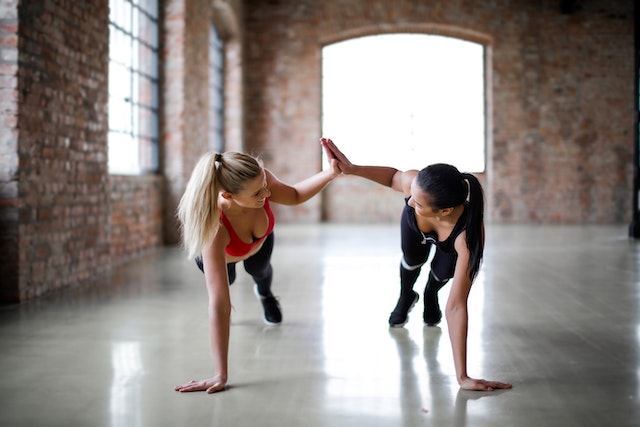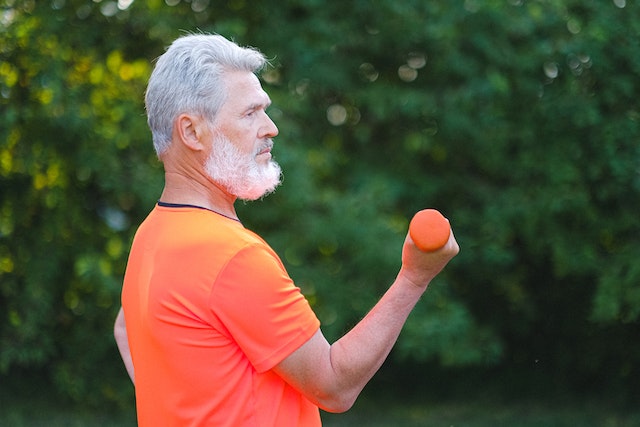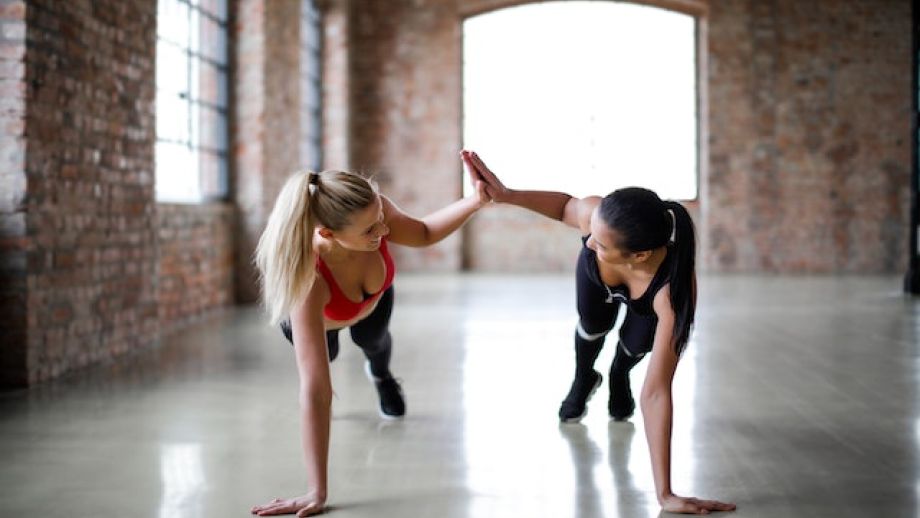Weak physical fitness poses various dangers to both physical and mental health. When individuals have poor physical fitness, they often experience a decline in cardiovascular health, leading to an increased risk of heart disease, high blood pressure, and strokes. Weak muscles and poor flexibility contribute to a higher likelihood of injuries, including strains, sprains, and fractures.
Additionally, individuals with weak physical fitness may struggle with weight management, as a lack of exercise can lead to weight gain and obesity, which are associated with numerous health problems, such as diabetes and joint issues. Weak physical fitness also impacts mental health, as it can contribute to feelings of fatigue, low self-esteem, and reduced overall well-being. Moreover, a sedentary lifestyle associated with weak physical fitness is linked to an increased risk of mental health conditions, including depression and anxiety. Overall, weak physical fitness poses significant dangers to both physical and mental health, highlighting the importance of regular exercise and maintaining good physical fitness.
In the following text are 20 pieces of advice for maintaining good physical fitness.
Table of Contents
Clear and Achievable Goals
Set clear and achievable goals that are specific, measurable, attainable, relevant, and time-bound (SMART goals): Setting goals helps provide direction and motivation for your fitness journey. SMART goals are specific (clearly defined), measurable (you can track progress), attainable (realistic and achievable), relevant (aligned with your overall objectives), and time-bound (with a specific timeline).
Combination of Exercises
Engage in a combination of cardiovascular exercise, strength training, and flexibility exercises for a well-rounded fitness routine: Incorporating different types of exercise ensures that you work on different aspects of fitness. Cardiovascular exercise (like running, swimming, or cycling) improves heart health and endurance. Strength training (using weights or resistance bands) helps build muscle strength and bone density. Flexibility exercises (such as yoga or stretching) improve range of motion and prevent injuries.
Consistency
Prioritize consistency in your workouts by scheduling regular exercise sessions throughout the week: Consistency is key to making progress in fitness. Schedule regular exercise sessions in your weekly routine and treat them as important appointments that you can’t miss.
Gradually Progress
Gradually increase the intensity and duration of your workouts to avoid overexertion and injuries: Progress gradually to allow your body to adapt to increased demands. Increase workout intensity, duration, or weight loads in small increments to avoid overexertion and reduce the risk of injuries.

Rest Days
Listen to your body and take rest days when needed to allow for recovery and prevent burnout: Rest days are as important as exercise days. Listen to your body’s signals for fatigue or soreness and take rest days or active recovery days (lighter exercise) to allow your muscles to repair and rejuvenate.
Vary your Workouts
Incorporate a variety of exercises and activities to keep your workouts interesting and challenge different muscle groups: Vary your workouts to keep them exciting and prevent boredom. Try different forms of exercise, such as running, swimming, dancing, or group fitness classes. This also helps engage different muscle groups and prevents plateaus.
Proper Warm-Up
Warm up before each workout with dynamic stretches and cool down afterward with static stretches: A proper warm-up prepares your body for exercise by increasing blood flow, raising your body temperature, and loosening up the muscles. Dynamic stretches (like leg swings or arm circles) are ideal for warming up. After the workout, cool down with static stretches (holding a stretch for 20-30 seconds) to improve flexibility and help with muscle recovery.

Maximize Effectiveness
Pay attention to proper form and technique when performing exercises to maximize their effectiveness and minimize the risk of injury: Perform exercises with proper form to target the intended muscles and prevent injuries. If you’re unsure about proper technique, consider working with a trainer or watching instructional videos to learn the correct form.
Drink Water
Stay hydrated by drinking plenty of water before, during, and after your workouts: Water is essential for optimal bodily function, especially during exercise. Drink water before, during, and after your workouts to stay hydrated and replace fluids lost through sweating.
Balanced Diet
Fuel your body with a balanced diet that includes a variety of fruits, vegetables, lean proteins, whole grains, and healthy fats: Nutrition plays a crucial role in fitness. Consume a balanced diet that includes a variety of nutrient-dense foods such as fruits, vegetables, lean proteins, whole grains, and healthy fats. These provide the necessary fuel and nutrients for energy, muscle repair, and overall well-being.
Sleep is Essential
Get sufficient sleep to support muscle recovery, hormone regulation, and overall well-being: Sleep is essential for recovery and overall health. Aim for 7-9 hours of quality sleep per night to allow your body to repair and rebuild muscles, regulate hormones, and support overall well-being.
Receive Guidance
Consider working with a certified personal trainer or fitness professional to design a personalized workout plan and receive guidance: If you’re new to fitness or want specialized guidance, consider working with a certified personal trainer or fitness professional. They can assess your fitness level, help you set realistic goals, and design a personalized workout plan that suits your needs and abilities.
Different Styles
Challenge yourself by setting new fitness targets or trying different workout styles, such as HIIT, yoga, or Pilates: Regularly challenge yourself by setting new fitness targets or trying different workout styles. This helps prevent boredom and keeps you motivated. High-intensity interval training (HIIT), yoga, Pilates, or other fitness classes can provide variety and new challenges.

Exercise Buddy
Find an exercise buddy or join a fitness community to stay motivated and accountable: Exercising with a friend or joining a fitness community can provide social support, motivation, and accountability. It’s more enjoyable to work out with others, and they can help you stay committed to your fitness goals.
Strength Training
Incorporate strength training into your routine to build muscle, increase metabolism, and improve bone density: Strength training offers numerous benefits, including building muscle strength, increasing metabolism (which aids in weight management), and improving bone density. Include resistance exercises at least two to three times per week, targeting major muscle groups.
Core Muscles
Don’t neglect your core muscles—include exercises that target the abdominal, back, and pelvic floor muscles: A strong core is essential for stability and overall strength. Include exercises that target the core muscles, including the abdominal, back, and pelvic floor muscles. Planks, bridges, and pelvic floor exercises are examples of effective core workouts.
Personal Journey
Avoid comparing your progress to others and focus on your own journey and improvements: Fitness is a personal journey, and everyone progresses at their own pace. Avoid comparing yourself to others as it can be demotivating. Focus on your own progress, celebrate your achievements, and remember that small steps forward are still progress.
Active Hobbies for Daily Life
Make physical activity a part of your daily life by incorporating active hobbies and lifestyle choices, such as walking or biking instead of driving: Incorporate physical activity into your daily life beyond formal exercise sessions. Choose active hobbies such as hiking, swimming, or dancing. Make lifestyle choices like taking the stairs instead of the elevator, walking or biking instead of driving short distances, or standing instead of sitting for extended periods.

Stick to your Routine
Stay consistent with your fitness routine even when facing obstacles or setbacks. Remember that small steps forward are still progress: Life can throw obstacles your way, making it challenging to stick to your fitness routine. However, it’s important to stay consistent and committed. Even if circumstances force you to modify your workouts or take a break, remember that any small step forward is progress.
Positive Mindset
Celebrate your achievements along the way and maintain a positive mindset to stay motivated and committed to your fitness goals: Acknowledge and celebrate your achievements, whether they’re big or small. Maintain a positive mindset, focus on the positive changes happening in your body and overall health, and use that motivation to keep pushing forward towards your fitness goals.
Final Words of Advice
Physical fitness is crucial for overall health and well-being. Regular exercise and maintaining a high level of physical fitness provide a multitude of benefits. Firstly, physical fitness helps to strengthen the cardiovascular system, improving heart health and reducing the risk of various cardiovascular diseases. Additionally, engaging in physical activity promotes weight management, as it helps to burn calories and maintain a healthy body weight. Moreover, physical fitness enhances muscular strength, flexibility, and endurance, enabling individuals to perform daily tasks with ease and reducing the risk of injuries.
It also plays a vital role in improving mental health by reducing stress, anxiety, and symptoms of depression. Furthermore, physical fitness positively impacts cognitive function and promotes better sleep patterns, leading to improved productivity and overall quality of life. In essence, physical fitness is essential for maintaining optimal health, preventing chronic diseases, and enhancing physical and mental well-being.
Remember, it’s always a good idea to consult with a healthcare professional before starting any new exercise program, especially if you have any underlying health conditions.
Read more posts in Life.



















[…] fitness is crucial for overall health and well-being 20 Tips on How to Achieve Good Physical Fitness Weak physical fitness poses various dangers to both physical and mental health. […]
[…] fitness is crucial for overall health and well-being 20 Tips on How to Achieve Good Physical Fitness Weak physical fitness poses various dangers to both physical and mental health. […]